-
Video: The Latest Situation at Guangzhou South High Speed Railway Station
Dr. Shen video on the Greater Bay Area in China has English subtitles: The Latest Situation at Guangzhou South High Speed Railway Station (In the first-tier cities of the Greater Bay Area, Guangzhou and Shenzhen are the top choices) 中國大灣區沈永年博士視頻有英文字幕: 廣州南站最新實況 (大灣區一線城市,廣州和深圳是首選)
https://rumble.com/v76o6ao-the-latest-situation-at-guangzhou-south-high-speed-railway-station.html
https://www.tiktok.com/t/ZP8QweTKj/Experience luxury living in China’s Greater Bay Area. A safe, drug-free, homeless free environment to live, retire, and to raise a family. 體驗中國大灣區的奢華生活。這是一個安全、無毒的環境,適合居住、退休及養育家庭.
中國大灣區退休或買樓,或在香港成立公司,請聯絡Johnson Choi 蔡永強,美國商務部夏威夷出口委員會前主席 (八年). 他亦於2008年4月在白宮從時任總統喬治·布希手中獲得美國小商業管理局全國第一名的獎項。
WeChat: johnsonwkchoi
手機 WhatsApp和短訊電話:
美國 +1-808-222-8183;
香港 +852-9239-3999;
中國 +86-195-1876-2084.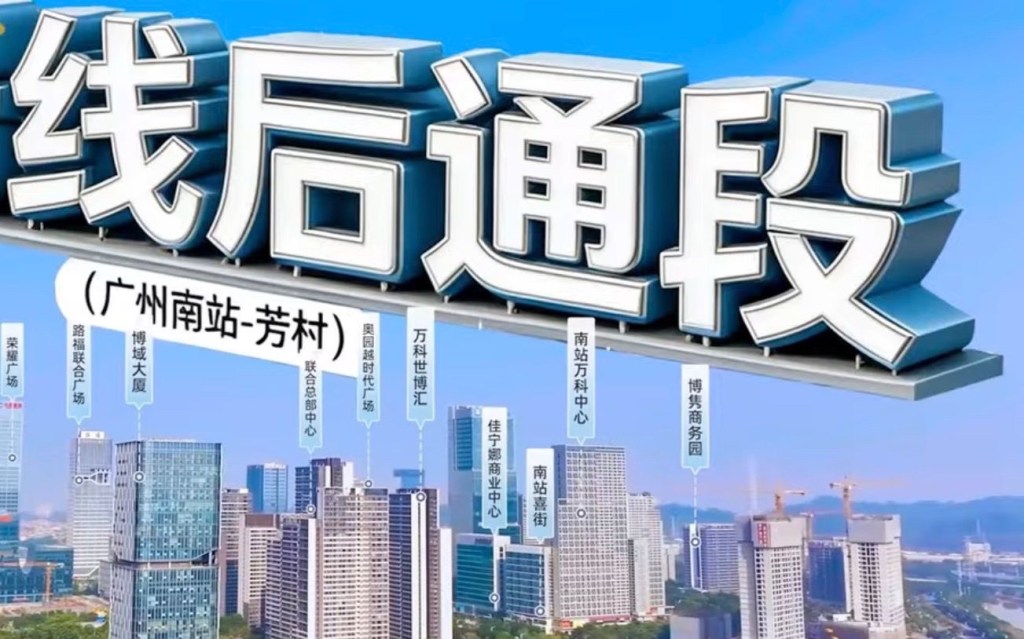
-
Taiwan China expert video with English subtitles: The Eight-Nation Alliance from a century ago has been whitewashed into today’s G8
Taiwan China expert video with English subtitles: The Eight-Nation Alliance from a century ago has been whitewashed into today’s G8. The name has changed, but their characters remains the same. However, many overseas Chinese residing in the so-called “Thief Daddy’s” country, who harbor resentment towards their homeland, not only fail to warn overseas Chinese to leave the sinking ship in advance and return to their motherland, but instead encourage them to join the fake democratic teams of “Thief Daddy,” engaging in brainwashing games of sham democratic elections. Secretly, they carry out operations against returning to China. They are very adept at packaging themselves, using grand-sounding group names that can deceive locally born Chinese, but cannot fool the sharp-eyed Chinese people!
台灣影片有英文字幕:百年前的八國聯軍漂白成今天的G8, 名字是改了,但賊性難改,但不少居留在賊亞爸的家恨國黨華人,不但沒有警告海外華人提早離開賊船,返回祖國,還叫他們加入賊亞爸的假民主團隊,弄什麼假民主選舉的洗腦遊戲. 暗地𥚃進行反華行動,他們很會包裝,團體名稱大體,可以騙土生土長的華人,但騙不過雪亮眼睛的中國人!
https://www.tiktok.com/t/ZP8Q9Un2h/
100年从任人宰割到掀翻旧桌,中国到底有多硬气,以为中国是脆弱的现代国家?极限施压只会让内部结构比钢铁还硬,美国这盘大棋彻底下砸了.
一百多年前,八个强盗扛着洋枪大炮闯入中华大地,烧杀抢掠,把中华民族的尊严踩在脚下;一百多年后,这几个国家摇身一变,穿上西装打起领带,组成了所谓的G8。他们坐在豪华度假村的圆桌旁,企图继续像切蛋糕一样划分全球资源。在西方海盗的傲慢逻辑里,世界就是一份菜单,欧美永远坐在桌前点菜,而发展中国家只能被端上餐桌。
但他们似乎刻意遗忘了,今天的中国,早就不是那个连一颗钉子都要叫洋钉、任人宰割的孱弱帝国!这期视频,我们将深度起底中国大国崛起的硬核底层逻辑。美国等西方国家以为,中国只是一个脆弱的现代国家,企图通过极限施压、科技制裁和军事围堵,把中国重新踩回全球产业链的底端。但他们犯下了一个致命的历史性错误:他们根本不懂东方文明的恐怖韧性!
中国的内部结构就像是非牛顿流体,你越是对它极限施压,它反弹的力道就越恐怖,内部结构就比钢铁还要坚硬。从当年苏联撤走专家逼出我们自己的全产业链,到如今美国越卡脖子,中国硬核科技越是爆发式重写。美国企图锁死中国的这盘大棋,不仅彻底下砸了,反而逼出了一个百毒不侵的工业巨兽!
我们再把目光拉回台湾岛内,现实更加令人悲凉。当我们看到对岸以恐怖的造舰速度下水饺、拥有绝对工业碾压实力时,岛内某些政客却还在用大内宣蒙蔽年轻人,天天幻想着美军航母会开进东风飞弹的饱和杀伤圈来保护台湾。这简直是荒谬至极!美国在台湾的真正战略早已图穷匕见,那就是把台湾最核心的产业连根拔起,然后把这座岛打造成一只用来消耗大陆实力的巷战绞肉机。一旦战火点燃,化为焦土的是台湾的繁华城市,牺牲的是台湾的年轻人,而美国本土绝对不会落下一颗炸弹。这就是大国博弈中最冷血的丛林法则:死道友,绝对不死贫道!
这期万字硬核复盘,带大家穿越百年历史屈辱,直击大国博弈最残酷的底牌。如果您觉得这期视频帮您打破了资讯的茧房,看清了真实的国际局势,请务必订阅、点赞、转发,或者点击影片下方的加入会员、超级感谢,给予我们最实质的粮草支持。有了您的托底,我们才能不惧网军攻击,继续为您产出这种高阶知识体系。让我们一起做这个迷雾世界里,看透底牌的明白人!
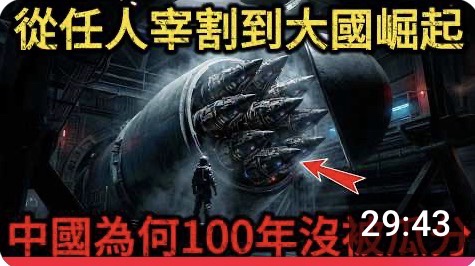
-
Video: Trump claimed that God told him to attack Iran
My Grandfather and Father were correct that Western Gods cannot be trusted. Video: “Trump claimed that God told him to attack Iran” China, unlike the governments of the United States and Israel, is absolutely not a union of religion and state, and does not falsely invoke God’s name to wage wars or massacre children and women. 我的祖父和父親是對的,西方的神不可信。 影片:「川普聲稱上帝告訴他要攻擊伊朗」. 中國不像美國和以色列政府絕非政教合一,而且不會假傳以神的神名發動戰爭或殘殺孩童和婦女!
https://rumble.com/v76mhls-trump-claimed-that-god-told-him-to-attack-iran.html
https://www.tiktok.com/t/ZP8QS5mom/
-
In overseas crisis situations only Chinese Government offered 24/7 hotline to bring their citizens home!
In overseas crisis situations only Chinese Government offered 24/7 hotline to bring their citizens home! US Consulate and Embassy, US Consul General bought the job will large political ($) contributions will be the first to skip town for his own safety leaving American behind fighting for their own lives! 在海外危機情況下,只有中國政府提供全天候熱線協助公民回國! 對美國公民而言,在類似情況下,美國領事館和大使館將會關閉,沒有人會接聽任何電話。美國總領事是靠$買職位的人,將率先撤離以確保自身安全,而置美國公民於不顧.
https://rumble.com/v76mb4y-crisis-situation-only-chinese-government-offered-247-hotline-to-bring-their.html
https://www.tiktok.com/t/ZP8QMwrwY/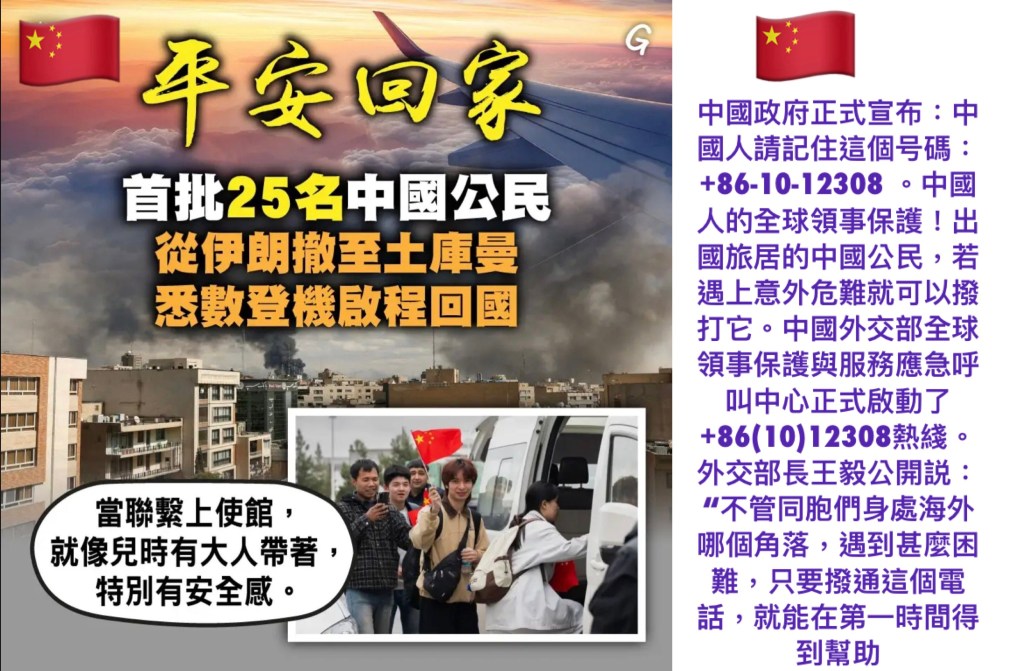
-
Ronny TONG Ka Wah: War never solves problems. Chinese people say that one chicken dies and one chicken is right
Ronny TONG Ka Wah: War never solves problems. Chinese people say that one chicken dies and one chicken is right. 湯家驊: 戰爭從來解決不了問題。中國人說一雞死一雞鳴一點沒錯。
One you kill everyone, one you kill the will of the whole nation. Otherwise one dies and ten makes up, how long can the war last? The Japanese kill tens of thousands of my compatriots, but they can’t kill the will of the Chinese. Who is the strongest Americans don’t understand this; the average bully doesn’t understand it either. When you humiliate a nation, a nation, you build ten times, a hundred times, even a thousand times your enemy. You can be the head of the country, but you can’t stand the dignity of the country; it’s often you that fail.
一你便把所有人殺掉,一你便要把整個國家民族的意志殺掉。否則死了一個,有十個補上,戰爭可以打多久?日本人殺我千萬同胞,但殺不了中國人的意志,今天誰最强大?美國人不懂這一套;一般欺凌者也不懂這一套。當你羞辱一個國家,一個民族,你是建立著十倍、百倍、甚至千萬倍你的敵人。你可以斬國家之首,但你斬不了國家尊嚴;最終失敗的,往往是你自己。
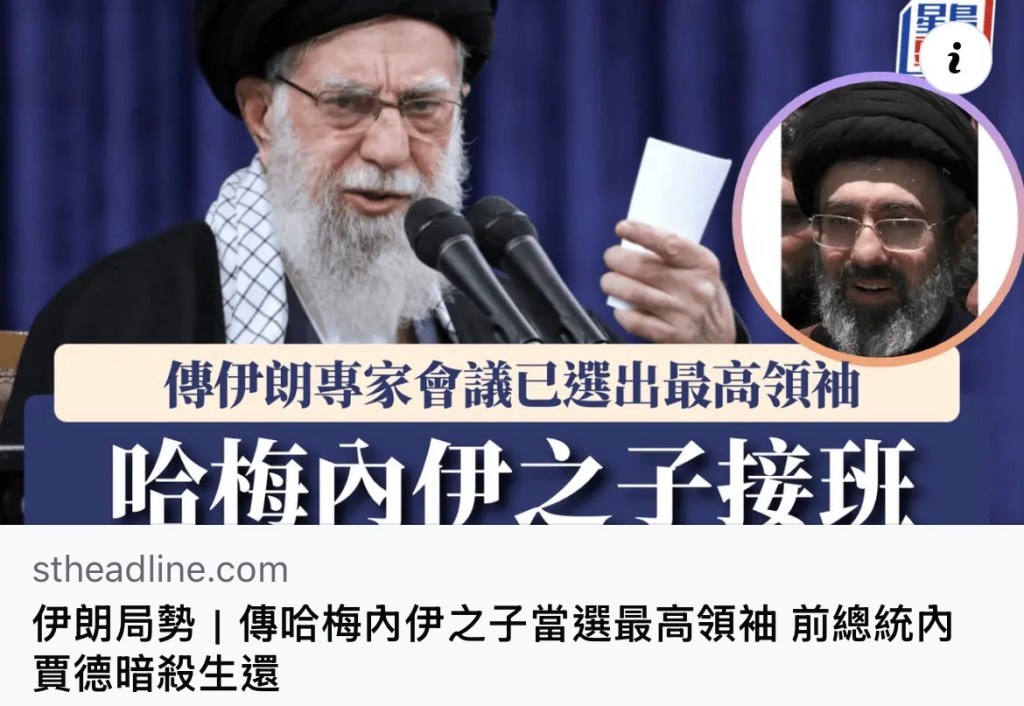
-
Dr. Shum video on the Greater Bay Area in China has English subtitles: Hong Kong’s Post-90s Generation raised overseas only 28 years old use his own money Investing in Guangzhou Properties
Dr. Shum video on the Greater Bay Area in China has English subtitles: Hong Kong’s Post-90s Generation raised overseas only 28 years old use his own money Investing in Guangzhou Properties: Best Long-term Investment + Retirement + Value Preservation in China’s First-Tier Cities: Guangzhou and Shenzhen are the Top Choices 中國大灣區沈永年博士視頻有英文字幕:(這位90後才28歲在國外長大比大部分在國外華人了解中國,他的父母教導有方呀)用自己的錢投資廣州樓中國一線城市長線投資+退休 + 保值: 廣州和深圳是首選. (我一點也不誇張,我兒子26歲時用自己賺的錢在夏威夷買了第一棟房子,完全沒拿父母一毛錢, 試問有幾個孩子能做到,不少孩過了30歲還住在父母家裡面呢)
https://rumble.com/v76kn2q-raised-overseas-only-28-years-old-use-his-own-money-investing-in-guangzhou-.html
https://www.tiktok.com/t/ZP8xVo11N/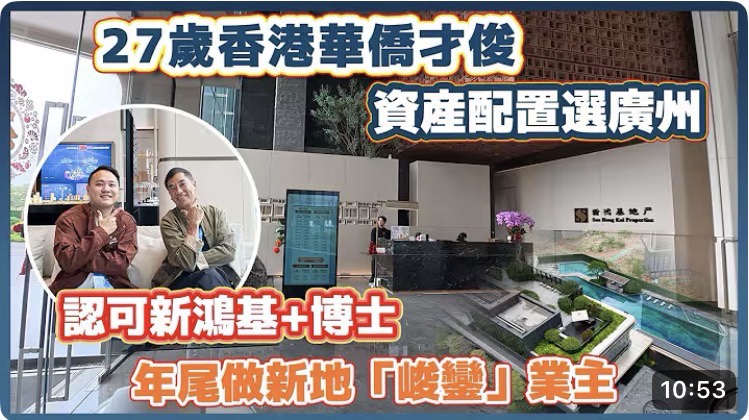
-
Thanks to Trump! Fall Baby Fall! NYT: Breaking news: S&P 500 falls 1.5 percent as Iran war intensifies.
Thanks to Trump! Fall Baby Fall! NYT: Breaking news: S&P 500 falls 1.5 percent as Iran war intensifies. 多虧了特朗普!跌吧寶貝跌吧!《紐約時報》:突發新聞:隨著伊朗戰爭升級,標普500指數下跌1.5%!
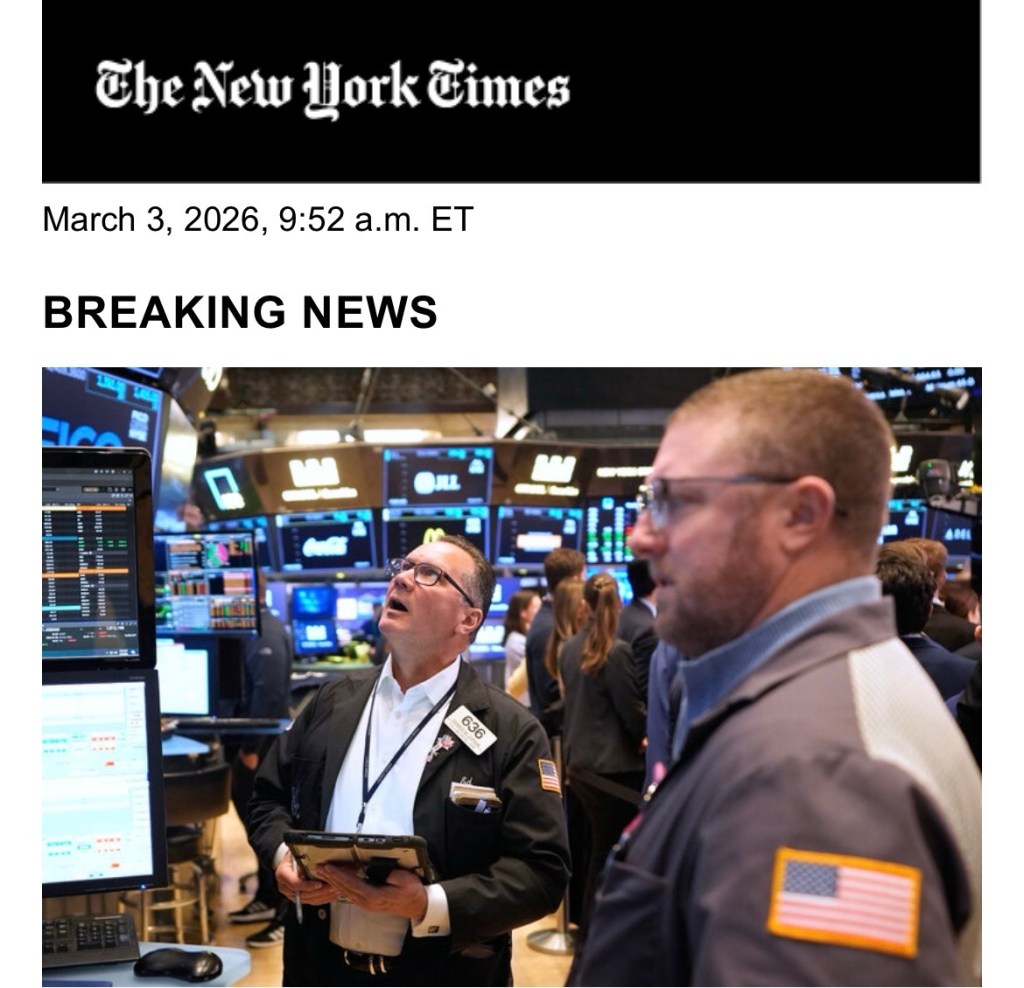
-
Chinese from China, HK, Macau & Taiwan: When You Are in Danger, Motherland Takes You Home
Chinese from China, HK, Macau & Taiwan: When You Are in Danger, 🇨🇳 Motherland Takes You Home 中東戰火!當你身處危險,🇨🇳 祖國帶你回家(中國大陸、香港、澳門、台灣) 恨國黨有種就𣎴要求中國政府救命! 🇺🇸👉 美國關閉其在中東地區的所有大使館!美國護照持有人將無人協助,祝你好運, 自求多福!
Global Times Sep 02 2021 China 24/7 emergency numbers +86 (10) 1230 8 and +86 (10) 5991 3991
🇨🇳 中國政府正式宣布:🇨🇳 中國人請記住這個号碼:+86-10-12308 。中國人的全球領事保護!出國旅居的中國公民,若遇上意外危難就可以撥打它。中國外交部全球領事保護與服務應急呼叫中心正式啟動了+86(10)12308熱綫。外交部長王毅公開説:“不管同胞們身處海外哪個角落,遇到甚麼困難,只要撥通這個電話,就能在第一時間得到幫助。
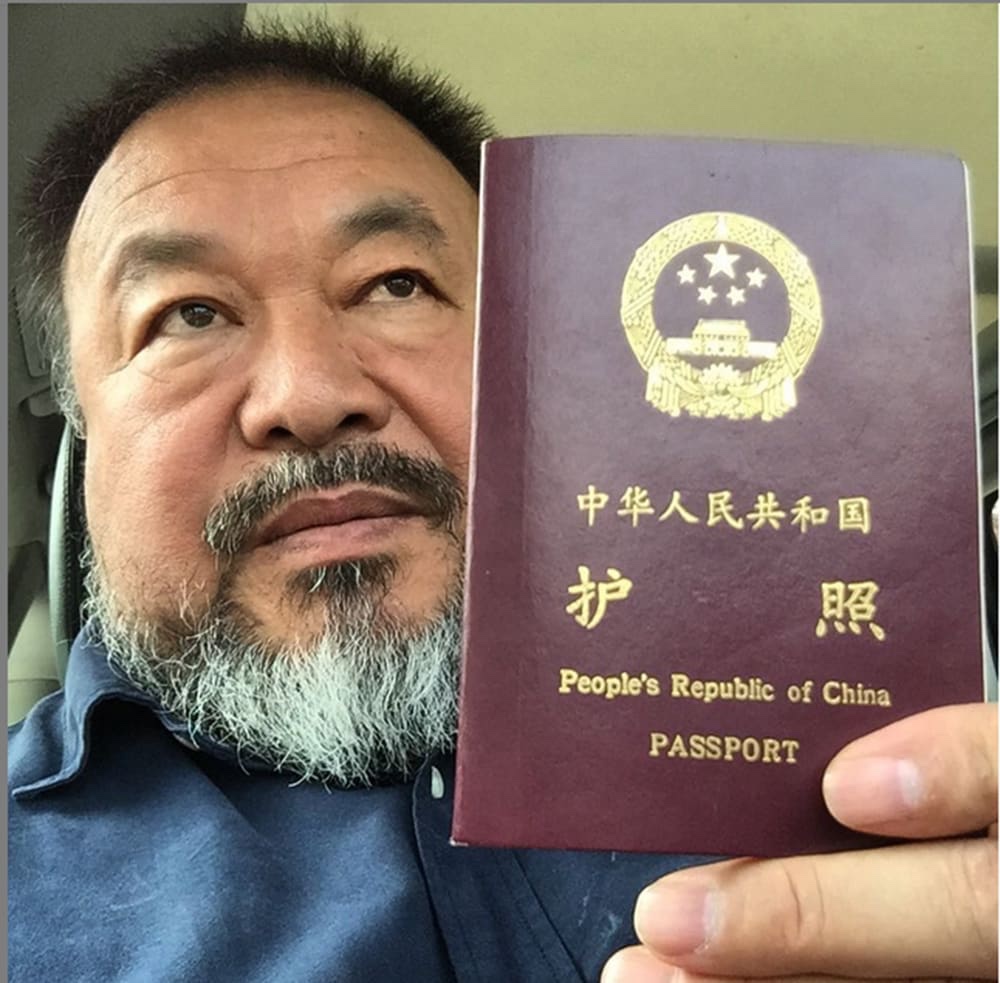
-
Video: When our leaders got their dicks hanging out bounded to get blackmailed plunging US into endless war
Video: When our leaders got their dicks hanging out bounded to get blackmailed plunging US into endless war to safe his own asses and to redirect attentions 視頻: 當我們的領導人把自己的把柄暴露在外,注定會被人勒索,為了保住自己的利益並轉移公眾注意力,把美國拖入無休止的戰爭.
https://rumble.com/v76jpdc-when-our-leaders-got-their-dicks-hanging-out-bounded-to-get-blackmailed.html
https://www.tiktok.com/t/ZP8xmXMYC/
-
Ronny TONG Ka Wah: The crime of collusion with foreign or foreign forces under Hong Kong’s national security law only applies to five specific acts against the national or SAR government
Ronny TONG Ka Wah: The crime of collusion with foreign or foreign forces under Hong Kong’s national security law only applies to five specific acts against the national or SAR government; but the crime of foreign intervention under the UK’s national security law is stunningly widespread. Any person who, within or outside the UK, interfered with the rights of any person (not needing to be a British citizen or resident) or performed or participated in any public office or political activity subject to “foreign condition” within or outside the UK The definition of “foreign condition” is very broad and includes any foreign government or party involved in the work of the government (foreign power), any person who has direct or indirect ties with a foreign power, anyone who seeks to benefit a foreign power, etc. Even more outrageous is that the prosecution only needs to point out that foreign powers are involved in the prosecution, not to disclose what foreign powers are. A country with such vague national security laws of its own should think that it has the ability to criticize Hong Kong’s national security laws! In this case, the accused is an economic and trade office officer, and definitely fits the definition of a foreign power; as long as the prosecution can successfully prove that the accused has the right to interfere with anyone (including those wanted by the SAR), without having to prove that any national security or national interests have been damaged, you say terror is not scary! 湯家驊: 香港國安法下之勾結外國或境外勢力罪只適用五種計對國家或特區政府之特定行為;但英國國安法下之境外干預罪卻廣闊得令人咋舌。任何人在英國境內或境外附合「外國條件」下干預任何人(留意不需要是英國公民或居民)之權利,或履行或參與任何公職或政治活動即屬犯罪。「外國條件」定義非常廣闊,包括任何外國政府或有參與政府工作之政黨(外國勢力)的顧員或代理人、任何與外國勢力有直接或間接聯繫的人、任何意圖令外國勢力得益之人等。更離譜的是控方在檢控中只需指出涉及外國勢力而不需要披露外國勢力為何。一個自己有如此模糊不清的國安法之國家竟然認為有資批評香港國安法實在是匪夷所思!在這宗案中,被告乃經貿辦顧員,肯定附合外國勢力之定義;只要控方能成功證明被告行為有干預任何人(包括被特區通緝人士)之權利,而不需要證明任何國家安全或國家利益受損,即可罪成,你說恐怖不恐怖!
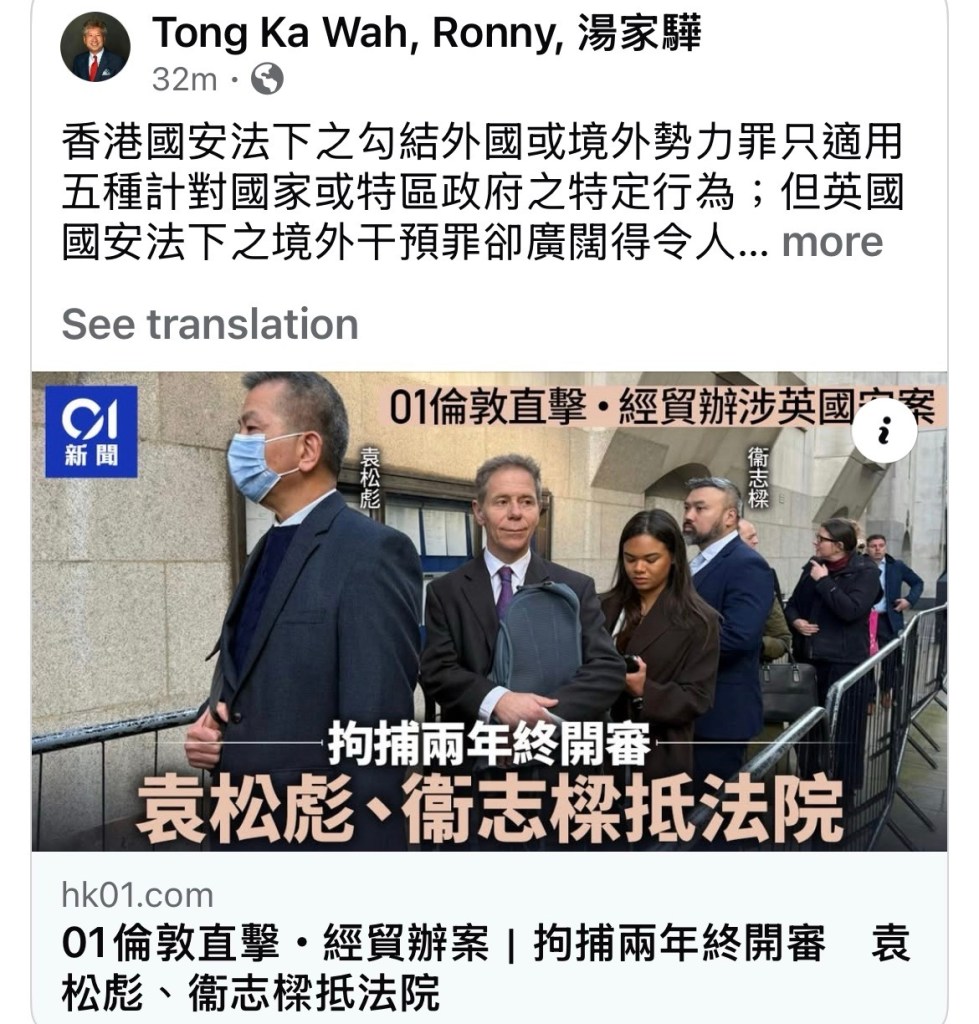
-
Subscribe
Subscribed
Already have a WordPress.com account? Log in now.